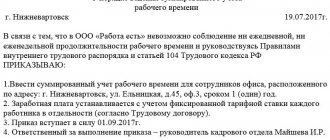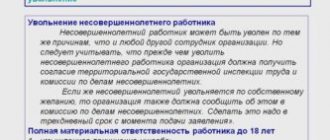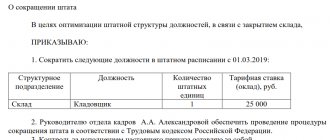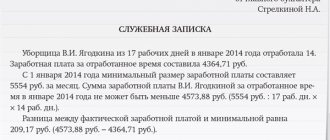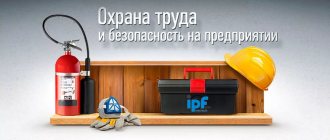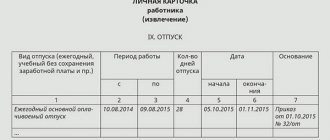What doctors do I need to see?
The standard list of doctors who must be examined when applying for a job looks like this:
- therapist (they start with him and end with him, receiving a final certificate);
- surgeon;
- neurologist;
- ophthalmologist;
- otolaryngologist.
You will also have to take a blood and urine test, undergo an ECG and fluorography, and for women, an additional visit to a mammologist and gynecologist.
This is the standard. But in addition to these doctors, some types of professions require examination by other specialists. This could be a narcologist, a psychiatrist, a gastroenterologist, a cardiologist, or an allergist.
What documents will be required
For the first medical examination you will need:
- passport;
- policy;
- pension insurance certificate (SNILS);
- a receipt confirming payment for the medical examination.
If you undergo a medical examination in a private clinic, the insurance policy and SNILS are not needed.
For regular inspection you will need:
- passport;
- hospital card;
- direction from the place of work.
In order to create a hospital card, you must provide a 3*4 photograph.
What documents need to be provided at the place of work after the inspection:
- the conclusion of the commission, which indicates whether the employee is suitable for work for health reasons or not;
- medical record, if required;
- certificate No. 086/u, if the employee is a minor.
What documents are needed to undergo a psychiatric examination:
- direction from the place of work, which indicates the profession and working conditions;
- passport.
Medical examination of a minor employee
You are here A medical examination of a minor employee is carried out on the basis of a referral from the employer.
The medical commission includes an occupational pathologist, as well as medical specialists who have undergone advanced training in the specialty “occupational pathology” in the prescribed manner or have a valid certificate in the specialty “occupational pathology”. Based on Article 69 of the Labor Code of the Russian Federation, persons under the age of eighteen are subject to a mandatory preliminary medical examination when concluding an employment contract. Persons under the age of 18 are subject to a preliminary compulsory medical examination upon hiring and an annual compulsory medical examination until they reach the age of 18.
The purpose of the medical examination is to determine the teenager’s ability to perform work without disrupting the processes of growth and development, deterioration of health, as well as to determine the compliance of functional capabilities with the requirements for professions in certain types of activities (Resolution of the Chief State Sanitary Doctor of the Russian Federation dated September 30, 2009 N 58 “ On approval of SanPiN 2.4.6.2553-09"). According to Article 266 of the Labor Code of the Russian Federation, persons under the age of eighteen are hired only after a preliminary compulsory medical examination and subsequently, until they reach the age of eighteen, are subject to a compulsory medical examination annually.
We are hiring a teenager
In what order should a minor undergo a preliminary medical examination when applying for a job and who pays for it - the teenager himself or the employer? If paying for a medical examination is the employer’s responsibility, then can its cost be taken into account in “profitable” expenses and is it necessary to withhold personal income tax and calculate insurance premiums?
- are taken into account in other expenses as expenses for ensuring normal working conditions and safety measures, etc. 7 clause 1 art. 264 Tax Code of the Russian Federation; Letter of the Ministry of Finance of Russia dated November 21, 2008 No. 03-03-06/4/84, and even if the teenager was not hired by Letter of the Ministry of Finance of Russia dated October 6, 2009 No. 03-03-06/1/648;
- are not subject to personal income tax, since they are not recognized as the economic benefit (income) of a teenager due to the fact that medical examinations are necessary to ensure the activities of the employer himself. Letter of the Ministry of Finance of Russia dated November 21, 2008 No. 03-03-06/4/84;
- are not subject to insurance contributions, since these are not payments in favor of employees within the framework of labor relations. Part 1 of Art. 7 of the Federal Law of July 24, 2009 No. 212-FZ “On insurance premiums. " ;
- are not subject to contributions “for injuries”, since they do not relate to payments in favor of those insured within the framework of labor relations and clause 1 of Art. 20.1 of the Federal Law of July 24, 1998 No. 125-FZ “On compulsory social insurance against accidents. "; clause 3 of the Rules for the accrual, accounting and expenditure of funds for the implementation of compulsory social insurance against accidents. approved Decree of the Government of the Russian Federation dated March 2, 2000 No. 184.
Medical examination for minors when applying for a job
It should list all identified contraindications, as well as other important data that play a key role during the period of official employment.
In particular, we are talking about the ability or impossibility to perform specific job responsibilities.
Such a document must be drawn up in several copies: One of them remains with the employee/applicant himself. The second must be transferred to the Direct Employer. Those employees who were able to undergo the appropriate medical examination must be allowed to perform specific job duties.
Finally, it is noted that the process of undergoing a medical examination does not entail difficulties if you follow the features specified in the article.
The commission for conducting the medical examination should include occupational pathologists.
It is allowed to include into the commission specialists of other profiles who have certificates or have undergone retraining in the specialty “occupational pathology”. The personal composition of the medical commission must be approved by the head of the medical institution.
Important Procedure: In accordance with the requirements of Art.
266 of the Labor Code of the Russian Federation, all persons under eighteen years of age can be employed only after a preliminary medical examination, which is carried out at the expense of the employer.
Before undergoing a medical examination, a candidate for employment must obtain a referral from the employer in the established form (Order of the Ministry of Health and Social Development No. 302n). This document is completed in accordance with the list of data approved by the employer.
Attention: To speed up the procedure, it makes sense to contact a specialized clinic - prices for their services vary on average from 1,500 to 3,000 rubles.
depending on the region and the number of examinations.
Hiring a minor worker: step-by-step procedure, documents
The law quite strictly regulates the procedure in accordance with which a minor worker is hired. The step-by-step procedure for each specific group is explained in the TC. General rules are established in Art. 63. In accordance with its provisions, all enterprises, except harmful and dangerous ones, are allowed to employ a minor aged 16 years. At the same time, the legislation provides for a number of conditions, subject to which younger specialists can be included in the staff.
All actions related to the conclusion of an employment contract are carried out not by the teenager, but by his guardians or parents. This, however, does not relieve the employer from a number of responsibilities. In general, the procedure for hiring minors is similar to that provided for fully capable citizens. The teenager must be familiarized with all local regulations of the enterprise directly related to his activities. In particular, these include:
How to apply for a referral for a preliminary or periodic medical examination?
The referral form for a preliminary or periodic medical examination does not have an approved form. However, there is a list of required details (clause 8 of Appendix No. 3 to the order of the Ministry of Health and Social Development dated April 12, 2011 No. 302n):
- employer name;
- form of ownership and type of activity of the employer according to OKVED;
- name of the medical institution, its registration and contact information;
- type of medical examination;
- Full name of the employee and his date of birth;
- name of the employer's department in which the employee works (will work);
- name of position, type of work, profession;
- factors harmful to health at work.
An authorized employee of the employer fills out the form for a referral for a medical examination.
How to pass a medical examination when applying for a job in 2020
Up to five thousand rubles For an official An individual entrepreneur faces a fine in the same amount And also provides for the suspension of the enterprise for ninety days In the amount of 50,000 rubles For employers and legal entities or suspension of the organization for ninety days If the violation occurs repeatedly The person responsible is subject to disqualification until three years
- Name of the organization;
- what the company does, its form of ownership, indicating the form of activity, according to OKVED codes;
- name of the medical institution, address of its location, OGRN of this institution;
- what type of medical examination will be required;
- initials, year of birth of the candidate;
- what position the employee should work in;
- what types of work the employee will perform.
Where are the directions for a medical examination?
Due to the fact that there is no specific form for sending employees to undergo a medical examination, each employer can approve its own form on the condition that it contains all the required details. In order to save time and avoid mistakes when developing their own form, many people prefer to use ready-made forms.
On our website you can download a completed sample referral for a medical examination.
Parental consent.
It has already been said above that if a person 14 years of age or younger is hired, then the obligatory condition is the consent of one of the child’s parents and the guardianship authorities. In addition, there are a number of other mandatory conditions that the employer must comply with.
Parental consent.
It has already been said above that if a person 14 years of age or younger is hired, then the obligatory condition is the consent of one of the child’s parents and the guardianship authorities. In addition, there are a number of other mandatory conditions that the employer must comply with.
Additional guarantees.
Additional guarantees for minor workers upon termination of an employment contract are established by Art. 269 Labor Code of the Russian Federation. They are that termination of an employment contract with such employees at the initiative of the employer (except in the case of liquidation of an organization or termination of activities by an individual entrepreneur), in addition to compliance with the general procedure, is allowed only with the consent of the relevant state labor inspectorate and the commission for minors’ affairs and the protection of their rights .
Who should pay for medical examinations for teenagers upon employment?
More and more teenagers are seeking to find work in their free time from school. Last year there were more than 500, and no fewer are expected this year. On the way to their first job in their lives, they fill out a number of documents, just like adults when applying for a job. But since child labor is under especially close protection of the state, the package of these certificates is more significant than that of adults.
It contains permission from guardianship authorities and parents, but the most difficult document to obtain for minors who want to earn several thousand on landscaping or landscaping during the holidays is a certificate of passing an entrance medical examination.
The procedure for undergoing medical examinations is, in principle, the same for everyone, and the employer is obliged to pay for it according to the Labor Code. However, this scheme does not work in the case of minors.
Temporary jobs are created for teenagers, usually financed from the city budget. The employers are a youth organization and several utility companies. To charge them with paying for children’s medical examinations according to the “adult” scheme would mean ruining the entire employment program. After all, the cost of such a medical examination, according to specialists from Central Medical Unit No. 38, will be about 2,369 rubles.
This is approximately how much children earn for a three-week shift in a labor camp! It turns out that the city should double its budget spending on summer employment? Add another 3 million rubles?
This pressing problem for all organizers of teenage employment was discussed at a meeting of the deputy commission on social issues. And no matter what arguments the invited experts gave, not one of them convinced the deputies.
The representative of the regional committee for labor and employment, Kirill Abalakov, with references to laws, insisted that Central Medical Unit No. 38 is obliged to conduct free entrance medical examinations of adolescents as part of its funding, as is done in all other districts of the Leningrad region.
And the representative of the Center for Medical Emergency No. 38, Nina Kukovyakina, with documents from the Ministry of Health in her hands, stated the opposite: according to them, the issuance of certificates of form 086-U suitable for the employer is provided only for minor applicants (before entering an educational institution) and for physical education and sports. In the territorial program within the framework of compulsory medical insurance, there is no such reason for applying as the employment of a minor, therefore, the work of doctors will not be paid.
As Nina Kukovyakina reminded, the doctor does not just issue a certificate. He is responsible for his decision, which is made after examining the child by several specialists, including an occupational pathologist. No one will go so far as to “flip” a signature on a piece of paper indicating that a teenager is ready to work.
Many of the participants in the discussion still remember that in the past this was often exactly what was done, when permission for children to work was simply issued by school doctors, who are now absent. But then, when checking employers, the prosecutor’s office began to object to certificates that were “out of form.” Then the problem arose.
One of its main reasons is the federal status of CMSC No. 38, outside the structure of the regional healthcare system. In this regard, there was even a “revolutionary” proposal: to ask the regional health committee to organize medical examinations of Sosnovy Bor teenagers by doctors from Lomonosov clinics. By the way, this is not the first time this idea has come up, at the suggestion of regionalists. The CMSC is also ready to conclude an agreement for entrance examinations of teenagers - but who will pay for the work of doctors?
To clarify the situation, by decision of the deputies, requests will be made to the regional health committee and the prosecutor's office. At the same time, CMSC No. 38 will make a request to the Compulsory Insurance Fund.
Document overview
Rules have been established for minors to undergo medical examinations: preventive, preliminary upon admission to educational institutions and periodic during the period of study in them. The rules update, streamline and bring together the requirements for conducting a medical examination of children of various age groups - from 0 to 17 years.
All medical examinations are carried out free of charge within the framework of the territorial compulsory medical insurance program in clinics at the place of residence (structural divisions of educational institutions). The mandatory prior voluntary consent of a minor or his legal representative to a medical examination is established.
Children under 1 year old are required to undergo medical examinations monthly, from 1 to 2 years old - once every 3 months, from 2 to 3 years old - once every six months, then once a year. The list of examinations and studies performed by medical specialists depends on the age of the child. Thus, babies at the age of 1 month are examined by a pediatrician, neurologist, pediatric surgeon and ophthalmologist. They should undergo an ultrasound of the abdominal organs, heart and hip joints, neurosonography (examination of the child’s brain through an open large fontanelle) and audiological screening (if not previously performed).
All one-year-old children, among other things, must also be examined by a child psychiatrist. Adolescents aged 14 years will also be consulted by a dentist and a neurologist.
For each child at the age of 1 year, 2, 3 years and in subsequent age periods, a preventive medical examination card is filled out (form N 030-PO/u-12). One copy is given to the minor (his legal representative).
Medical examinations for minors
Creating the necessary conditions for protecting and strengthening the health of students is one of the areas of activity of educational organizations. In turn, health protection includes students undergoing periodic medical examinations in accordance with the legislation of the Russian Federation. However, minors may be subject to other types of examinations. Let's consider the order of each of them.
Types of medical examinations for minors
Health care legislation establishes the obligation to conduct preliminary medical examinations of minors entering educational organizations, as well as periodic medical examinations of students. This requirement is contained in clauses 2, 3, part 2 of Art. 46 of Federal Law No. 323-FZ of November 21, 2011 “On the fundamentals of protecting the health of citizens in the Russian Federation” (as amended on December 28, 2013; hereinafter referred to as Federal Law No. 323-FZ).
A medical examination is a complex of medical interventions aimed at identifying pathological conditions, diseases and risk factors for their development (Part 1, Article 46 of Federal Law No. 323-FZ). A necessary precondition for medical intervention is the giving of informed voluntary consent of a minor or his legal representative to medical intervention in compliance with the requirements established by Art. 20 of Federal Law No. 323-FZ. The procedure for giving informed voluntary consent to medical intervention and refusal of medical intervention in relation to certain types of medical interventions, the form of informed voluntary consent to medical intervention and the form of refusal of medical intervention are approved by Order of the Ministry of Health of Russia dated December 20, 2012 No. 1177n.
For your information
In accordance with Art. 26, 28 of the Civil Code of the Russian Federation, Art. 64 of the Family Code of the Russian Federation, the legal representatives of minors are parents, adoptive parents, guardians (trustees).
The procedure for minors undergoing medical examinations, including upon admission to educational institutions and during the period of study in them (hereinafter referred to as the Procedure), was approved by Order of the Ministry of Health of Russia dated December 21, 2012 No. 1346n. The document is valid from 05/06/2013. Clause 1 of the Procedure provides for the following types of medical examinations of minors :
- preventive;
- preliminary for admission to educational institutions;
- periodic during the period of study in educational institutions.
Preventive medical examinations of minors are carried out at established age periods for the purpose of early (timely) detection of pathological conditions, diseases and risk factors for their development, as well as for the purpose of forming health groups and developing recommendations for minors (clause 3 of the Procedure).
Preliminary medical examinations of minors are carried out upon admission to educational institutions in order to determine the student’s compliance with educational requirements (clause 4 of the Procedure).
Periodic medical examinations of minors are carried out for the purpose of dynamic monitoring of the health status of students, timely detection of initial forms of diseases, early signs of the impact of harmful and (or) dangerous factors of the educational process on their health and identification of medical contraindications to continuing their studies (clause 5 of the Procedure). Periodic inspections are carried out at intervals established by law.
It is important! All types of examinations of minors can only be carried out by medical organizations, regardless of their organizational and legal form, that provide primary health care to minors and have a license to carry out medical activities.
The procedure for carrying out preventive examinations
As a general rule, the license of medical organizations that can conduct preventive examinations must provide for the performance of work (provision of services):
- for preventive medical examinations;
- pediatrics or general medical practice (family medicine);
- neurology;
- ophthalmology;
- traumatology and orthopedics;
- pediatric surgery;
- psychiatry;
- pediatric dentistry or dentistry;
- pediatric urology-andrology or urology;
- pediatric endocrinology or endocrinology;
- otorhinolaryngology or otorhinolaryngology (excluding cochlear implantation);
- obstetrics and gynecology or obstetrics and gynecology (excluding the use of assisted reproductive technologies);
- laboratory diagnostics;
- clinical laboratory diagnostics;
- functional diagnostics;
- ultrasound diagnostics;
- radiology.
A mandatory condition for carrying out preventive examinations of minors is that the medical organization has a license to carry out medical activities that include performing work (providing services) for preventive medical examinations, pediatrics or general medical practice (family medicine). However, a medical organization may not have a license for certain types of medical activities listed above. In this case, it attracts specialists from other medical organizations that are licensed to perform the required work (services). For this purpose, appropriate agreements are concluded between medical organizations.
In addition, clause 11 of the Procedure provides for the possibility of interchangeability of medical specialists conducting preventive examinations. For example, if a medical organization does not have a pediatric urologist-andrologist, then a urologist or a pediatric surgeon who has been trained in additional professional education programs regarding the characteristics of urological diseases in children is involved in conducting a preventive examination. In this case, a medical organization must have a license to carry out medical activities, providing for the performance of work (provision of services) in urology or pediatric surgery, respectively.
If there is no pediatric dentist in the medical organization, a dentist who has been trained in additional professional education programs regarding the characteristics of dental diseases in children is involved in conducting a preventive examination. At the same time, a medical organization must have a license to carry out medical activities, which includes performing work (providing services) in dentistry.
If the medical organization does not have the services of a pediatric endocrinologist, then an endocrinologist who has been trained in additional professional education programs regarding the characteristics of endocrinological diseases in children is involved in conducting a preventive examination, provided that the medical organization has a license to carry out medical activities, which includes works (provision of services) in endocrinology.
If there is no pediatric psychiatrist (adolescent psychiatrist) in the medical organization, a psychiatrist who has been trained in additional professional education programs regarding the characteristics of mental disorders and behavioral disorders in children is involved in conducting a preventive examination. In this case, the medical organization must have a license to carry out medical activities, providing for the performance of work (provision of services) in psychiatry.
It is important! The list of studies carried out during preventive examinations depends on the age of the minor [1].
Information about the preventive examination is entered into the medical documentation of the minor (history of the child’s development). It should contain the following information:
1) medical history data:
– about previous diseases (conditions), the presence of functional disorders, chronic diseases, disability;
– on the results of dispensary observation (if any) indicating the diagnosis of the disease (condition), including the code according to the International Statistical Classification of Diseases and Related Health Problems (ICD);
– on compliance with the recommendations of medical specialists for dispensary observation, treatment, medical rehabilitation and sanatorium-resort treatment;
2) data obtained during a preventive examination:
– objective data and results of examinations by medical specialists;
– results of laboratory, instrumental and other studies;
– results of additional consultations and studies not included in the list of studies during preventive examinations and prescribed during the preventive examination;
– diagnosis of the disease (condition) identified (established) during a preventive examination, indicating the ICD code, whether it was detected for the first time or not;
3) assessment of physical development;
4) group of the minor’s health status;
5) recommendations:
– on the formation of a healthy lifestyle, daily routine, nutrition, physical development, immunoprophylaxis, physical education;
– on the need to establish or continue dispensary observation, including the diagnosis of the disease (condition) and the ICD code for treatment, medical rehabilitation and sanatorium-resort treatment, indicating the type of medical organization (sanatorium-resort organization) and the specialty (position) of the doctor.
Such requirements for the preparation of medical documentation are contained in clause 21 of the Procedure. In addition, based on the results of a preventive examination in a medical organization, registration form No. 030-PO/u-12 “Card of preventive medical examination of a minor” is filled out, given in Appendix 2 to Order of the Ministry of Health of Russia dated December 21, 2012 No. 1346n.
Procedure for conducting preliminary inspections
A mandatory condition for conducting preliminary examinations of minors is that the medical organization has a license to carry out medical activities that include performing work (providing services) on medical examinations (preliminary, periodic), pediatrics or general medical practice (family medicine). Other types of work (services) are similar to those provided for by the license required to conduct preventive inspections. However, a medical organization may not have a license for certain types of medical activities. In this case, it attracts specialists from other medical organizations that have a license to carry out medical activities in terms of performing the required work (services). Cooperation between medical organizations is carried out on the basis of relevant agreements.
It is important! According to clause 29 of the Procedure, during preliminary examinations, the interchangeability of medical specialists is also possible.
In order to undergo a preliminary examination upon admission to an educational institution, a minor (his legal representative) must write an application addressed to the head of the medical organization. According to clause 31 of the Procedure, the application for a preliminary examination of a minor must indicate the following information:
- type of medical examination (preliminary);
- last name, first name, patronymic of a minor entering an educational institution; date of birth and address of residence;
- full name of the medical organization providing primary health care to minors, its address;
- the full name and type of educational institution where the minor will study, the address of its location;
- details (series, number, medical insurance organization) of the compulsory health insurance policy;
- contact information (for example, home and mobile phone numbers, e-mail).
The application must be signed and indicated by the minor himself or his legal representative. If the application is drawn up by the legal representative of a minor, then it indicates the details of the documents confirming the authority of the representative, and copies of the mentioned documents are attached to the application. It is subject to registration with a medical organization and is the basis for issuing a referral for a preliminary examination. The following information is indicated in the direction:
- a list of studies and examinations by medical specialists;
- date and place of inspections;
- information about the pediatrician, local pediatrician, general practitioner (family doctor) of the medical organization responsible for conducting the preliminary examination.
According to clause 32 of the Procedure, a referral issued in the prescribed manner is handed to the applicant by an authorized official within 5 working days from the date of registration of the application.
To undergo a preliminary examination, a minor must independently arrive at a medical organization within the prescribed period, present a referral and a compulsory health insurance policy. A minor under 15 years of age arrives at a medical organization accompanied by a parent or other legal representative.
Preliminary examinations of minors are carried out in two stages. At the first stage, medical specialists conduct examinations, carry out laboratory, instrumental and other studies provided for in Section. 2 List of studies during preliminary medical examinations. Those entering kindergarten are examined by 8 specialists, including a psychiatrist and a gynecologist (urologist), and undergo urine, feces and blood tests, including glucose levels. Before entering school, you will additionally need to be examined by an orthopedic traumatologist, have an ultrasound of the abdominal organs, reproductive organs, heart, thyroid gland, as well as electrocardiography. If there is no suspicion that a minor has an undiagnosed disease (condition) and (or) there is a need to obtain information about the minor’s health status from other medical organizations in accordance with clause 8 of Part 4 of Art. 13 of Federal Law No. 323-FZ, the preliminary inspection is considered completed. The duration of the first stage of the preliminary inspection should be no more than 10 working days (clause 38 of the Procedure).
At the second stage, additional consultations and studies are carried out, which are prescribed in accordance with clause 36 of the Procedure, and (or) information about the health status of the minor is requested from other medical organizations. This stage is carried out only if a minor is suspected of having a disease (condition), the diagnosis of which cannot be established during examinations by medical specialists and studies included in section. 2 List of studies during preliminary medical examinations, and (or) the need to obtain information about the health status of a minor from other medical organizations.
The total duration of the two stages of the preliminary inspection should be no more than 30 working days (clause 38 of the Procedure).
Data on the preliminary examination are entered into the medical documentation of the minor (history of the child’s development). The nature of the information is similar to that indicated when recording the results of a preventive examination. Based on the data on the preliminary examination, the doctor responsible for its conduct determines the health group of the minor and the medical group for physical education, and also draws up a medical report on the minor’s membership in the medical group for physical education (for minors entering educational institutions). institutions that provide physical education classes). In addition, when registering the results of a preliminary examination, a child’s medical card is required for educational institutions of preschool, primary general, basic general, secondary (complete) general education, institutions of primary and secondary vocational education, orphanages and boarding schools and (or) a medical certificate for minors entering primary, secondary and higher vocational education institutions. The medical record (certificate) contains information about the state of health and an assessment of the minor’s compliance with training requirements. These documents are drawn up in one copy, which is issued to the minor or his legal representative.
Procedure for periodic inspections
According to clause 42 of the Procedure, periodic inspections are organized by educational organizations . Such examinations are carried out annually and only for minors studying full-time. The license of a medical organization in which periodic examinations are carried out must provide for the performance of work (provision of services) for medical examinations (preliminary, periodic), pediatrics or general medical practice (family medicine). In this case, the educational institution has the right to organize periodic examinations in a structural unit carrying out medical activities (for example, in a medical center, medical unit, etc.). In this case, the educational organization must have a license to carry out medical activities, providing for the performance of work (provision of services) in pediatrics.
Periodic inspections are carried out on the basis of lists compiled by the educational institution, which list by name minors who are subject to periodic inspection in the coming calendar year. The list contains the following information:
- last name, first name, patronymic, age (date, month, year of birth) of the student;
- full name and address of the medical organization where the minor receives primary health care.
The list is approved by the head (authorized official) of the educational institution, after which it is sent to the medical organization with which an agreement has been concluded to conduct periodic examinations. This must be done no later than 2 months before the start of the calendar year. If the number of minors subject to periodic examinations changes, the head (authorized official) of the educational institution is obliged to submit an updated list to the medical organization by the 20th day of the current month.
Based on the list, the medical organization draws up a calendar plan for conducting periodic examinations . Responsibilities for its preparation rest with the head (authorized official) of the medical organization. This document contains the following information:
- pediatrician, local pediatrician, general practitioner (family doctor) of a medical organization, responsible for conducting periodic examinations;
- laboratory tests, date and time of their conduct;
- number of minors for each age group.
The plan must be agreed upon with the head (authorized official) of the educational institution, and also approved by the head (authorized official) of the medical organization no later than a month before the start of the calendar year. The plan is then communicated to the medical professionals involved in the periodic examination.
Note!
If periodic examinations are carried out in a structural unit of an educational institution engaged in medical activities, the list and plan are drawn up by a pediatrician of this institution and agreed upon with its head (authorized official).
a referral is issued for each student . It must indicate the date, time and place of the inspection. Directions are given to minors or their legal representatives by an authorized official no later than 5 working days before the start of the periodic examination. The responsibility to ensure that minors appear for periodic medical examinations rests with the head (authorized official) of the educational institution.
To undergo a periodic examination, a minor must independently arrive at a medical organization or a structural unit of an educational institution that carries out medical activities within the prescribed period and present a referral and a compulsory health insurance policy. Periodic examinations of minors are carried out in accordance with Section. 3 List of studies during periodic medical examinations, given in Appendix 1 to the Procedure.
Data on the periodic examination are entered into the minor’s medical documentation - the history of the child’s development and the child’s medical record for educational institutions. These documents contain information about the minor’s health status and a conclusion about the presence (absence) of medical contraindications to continuing his studies. If a periodic examination is carried out in a structural unit of an educational institution, then data on its completion is entered only into the child’s medical record for educational institutions.
[1] See: sect. I of Appendix 1 to the Order.
At whose expense is the inspection carried out and is it possible to reimburse its cost?
According to Article 212 of the Labor Code of the Russian Federation, the manager must pay the costs of mandatory periodic medical examinations.
This also applies to primary medical examinations: the employer undertakes to pay for the services of doctors. But in some cases, they may offer to pay for the inspection themselves and promise to compensate the amount later.
In this case, the employer can indeed be required to reimburse the cost. If he refuses, he will have to demand it through the courts.
If a medical certificate is needed, the employer must pay for it.
It is worth remembering that the employer does not have the right to demand compensation for money spent on the initial examination and medical examination if he refuses to hire you.
How can I reimburse the cost of a medical examination if I still had to do it at my own expense? Write an application to the accounting department at your place of employment. Attach a receipt for payment for the service to the document.
The manager will approve the document and the money will be returned. Most often, the cost of a medical examination is included in the next salary or paid in advance. You can check this with your accountant or employer. Again, if they refuse to return the money, you should go to court.
Didn't pass the medical examination - what to do
Article 73 of the Labor Code of the Russian Federation: if an employee does not undergo a scheduled examination, the boss will provide him with a job for which he meets the medical requirements. However, he has the right to fire a person if there is no such position in the company or if he refuses it.
However, here you need to understand that the employer will transfer the employee (on a temporary or permanent basis) to another position only if the need for this is recorded in the conclusion of the medical commission. That is, for a transfer based on health reasons, specific evidence is needed.
Just in case, it’s worth clarifying once again under what conditions they can be fired if they fail to pass the inspection:
- A medical certificate confirming that the employee needs to take a position that is not contraindicated for health reasons.
- Written refusal to transfer to another position.
- Lack of vacancies in the company that meet the labor safety conditions required by a particular employee. But the employer still has to prove that he is really not ready to provide such work: present a staff schedule and prove why this or that vacancy is not suitable for the employee due to his state of health.
It must be borne in mind that an unscrupulous employer will take the opportunity to remove an employee from his position or suspend him altogether, and to do this he will send him to an unscheduled commission. Such a procedure must also be paid for out of his pocket.
If you have doubts that the commission was carried out correctly (for example, you suspect that the doctors were bribed), there is an option to undergo an additional examination at a private clinic. Corruption is a serious crime, you need to protect your rights.
What procedures will you have to undergo: tests and examinations
The list of procedures for different professions varies; it can be obtained from the employer or from the referral for examination.
For example, drivers must additionally undergo a psychiatrist and a narcologist. Tests: blood (including additional analysis for sugar and cholesterol), urine, fluorography, ECG. For women, you also need to take a smear test.
Doctors: ENT, surgeon, ophthalmologist, neurologist and therapist. For women, there is an additional gynecologist.
Where can I get a medical examination? In fact, in any licensed hospital. In theory, both a public clinic and a private one are suitable. However, just in case, it doesn’t hurt to check with the reception desk whether the selected hospital provides such a service.
Special attention in the Labor Code (namely, in Article 213) is given to a number of professions, for entry into which a psychiatric examination is required. The examination is carried out by a commission of doctors at least once every five years. It takes 20 days or less from the time you contact the commission.
The decision is made within 10 days, the results are given in writing and signed. You can ask questions related to the examination, and the commission must answer. If, based on the results, the employee is not satisfied with the conclusion of the commission and considers them false, then he has the right to go to court.
What does the law say?
In accordance with current legislation, everyone has the right to work, including persons under 18 years of age.
But taking into account the young age of applicants, as well as the characteristics of their young bodies, at the legislative level some restrictions are provided for minor workers and a number of admission features are established.
Normative base
Article 63 of the Labor Code of the Russian Federation states that the employment of young workers is possible, but only if certain conditions are met, namely:
Benefits and guarantees
Given the young age of workers, the legislation provides not only restrictions, but also benefits that were introduced to protect minors.
| No. | Privileges | Reasons |
| 1. | Reduced production rates | Article 270 of the Labor Code of the Russian Federation |
| 2. | Remuneration is not lower than the established salary, but in proportion to the time worked | Article 271 of the Labor Code of the Russian Federation |
| 3. | Annual rest of at least 31 days, and at a time convenient for young workers | Article 267 of the Labor Code of the Russian Federation |
| 4. | Shortened week from 24 to 35 hours depending on age | Article 92 of the Labor Code of the Russian Federation |
| 5. | Shortened daily shift from 2.5 to 7 hours depending on age and combination of work and study | Article 94 of the Labor Code of the Russian Federation |
| 6. | Mandatory medical examinations at the expense of the employer | Article 266 of the Labor Code of the Russian Federation |
| 7. | Dismissal only with the consent of the state. juvenile affairs inspectorate | Article 269 of the Labor Code of the Russian Federation |

